Nowadays, investing is something that everyone wants to do as it is one of the best ways to create wealth.
Being an investor, you should know that the stock market is indeed the best way to earn money, but it definitely can put you in a financial crisis if you don’t do the right research for the stocks you’re investing in.
Speaking of stock market research, many investors consider Mohnish Pabrai – An Indian-American businessman, investor, and philanthropist, their idol and follow his investment path to succeed in their stock market investment journey.
Mohnish Pabrai founded the Pabrai Investment Funds and Founder & CEO of the Dhandho Funds.

Though not a household name in the West, Mohnish Pabrai is the Midas of Indian investing.
His record of spotting promising growth companies, identifying their flaws, and waiting for the market to recognize their potential has made him one of the most respected investors.
Let’s now learn some investment lessons from Mohnish Pabrai’s investing approach.
1. Aim For Low Risk, High Returns
Being an investor alongside an Entrepreneur, Mohnish always believed to be an investor playing on the safe side. He says that entrepreneurs are great at dealing with uncertainty and are also very good at minimizing risk.
Being an entrepreneur, he learned one thing, which is to minimize risks from every sector he invested in.
So, from the stock market, if you can’t make more money, you can at least minimize the risks involved in your investment by playing safe. Either way, you’re not earning much, but not even losing. Though it is safe to play, I would like to call this investment approach a smart one.
Pabrai uses the Gujarati word “Dhandho“ which means endeavors that create wealth.
More specifically, in the context of investing, he is referring to high-return business ventures with low downside risk. These are businesses where even if things go wrong, you can still make money.
Dhandho investors don’t try to be clever or outsmart anybody. They simply buy businesses with a margin of safety – they pay a low enough price that if they’re wrong, they won’t lose much. If they’re right and the market eventually realizes it, there are plenty of upsides.

He compares his investment approach to the two sides of the coin by saying. “Heads I win, tails I don’t lose much.”
This approach can be comprehended as low risk, and high uncertainty because even if they don’t get much profit from the investment, they can at least expect to get minimal risks.
In short, being a business personality, Mohnish Pabrai believes in investing in “low-risk, high returns” stocks rather than “high-risk, higher returns“.
2. Investment is All About Waiting
Mohnish says,
“The single biggest advantage a value investor has is not IQ. It’s patience and waiting. Waiting for the right pitch, and waiting for many years for the right pitch.”
-Mohnish Pabrai
In the last two decades, the stock market has seen its share of ups and downs. During this time, there have been many occasions when the market has fallen by more than 10 percent in one day.
However, investors like Mohnish Pabrai are not worried about such volatility in the market. They know that if they buy good stocks at the right time and hold them for a long period, they can give unimaginable returns.
Letting your investments grow through compounding can make you a lot of money; investors whose assets have grown exponentially have either forgotten about the stocks in which they made their initial gains, or have used those returns to diversify into other assets.
The reason investors don’t get the full value of compounding is that every time the stock goes up, their mind starts playing games with them. The stock that was a small part of the portfolio suddenly becomes a big part and invokes fear or greed depending on whether one is looking at it from a gain or loss perspective.
This can cause you to make all sorts of mistakes, like selling after a large rise in price (because your mind says it’s too big) or not selling when you should (because your mind says it’s still too small).
“You don’t make money when you buy stocks. And you don’t make money when you sell stocks. You make money by waiting.”
-Mohnish Pabrai
3. Mistakes are the Best Teachers
Like other successful stock market investors, Mohnish Pabrai also recommends learning something from mistakes and not repeating them next time.

Mohnish says that mistakes are the best teachers. One does not learn from success. It is desirable to learn vicariously from other people’s failures, but it gets much more firmly seared in when they are your own.
Through this, he points out that, being an investor, you need to accept your mistakes whenever you face a downfall in the stock market. Because in the stock market, there are times when you’re right and when you’re wrong. For example, a stock line can go 10% down and even 50% up, so it’s truly beyond your expectations.
There’s only one thing that can help you succeed in the stock market, and that is your positive attitude toward learning from your mistakes.
So, to be the investor containing a higher profit earning accuracy rate, you should analyze your downfalls and other people’s downfalls and find higher profit-gaining stocks, which are the ones with lower risks, to find your right investment.
You should consider your mistakes as an opportunity to remediate your downsides and find success in your next investment.
4. Play across Your Understanding Areas
In the stock market, your interest in the company plays a major role in helping you gain profit. That’s why Mohnish Pabrai says,
“The only way one should buy stocks is if you understand the underlying business. You stay within the circle of competence. You buy businesses you understand.”
-Mohnish Pabrai
You should select the company you’re most interested in, find the investors that are making profits from such stocks, follow their investment approach, analyze points where they make mistakes, and make your right move at the right time and write your investment saga.
The best investors can look at a company and assess its competitive advantages by analyzing what business it’s in. This may sound obvious, but many people make the mistake of thinking that a business is defined by its products or services. They confuse a firm with its industry.
In practice, however, the industry in which a company competes is often less important than how it competes within the industry.
For example, companies that manufacture integrated circuits are all in the same industry–semiconductors–but they compete on very different terms. Some sell their products to computer makers such as Dell; others sell to electronics manufacturers such as Nokia; still, others sell to automobile companies such as General Motors.
Those differences mean that each company faces different risks and has different prospects for growth and profitability.
Even within a single industry, there can be a significant disparity among individual companies’ prospects.
So, always play in the areas you find your maximum interest in and in which you can use your analytical expertise.
5. Always Make A List of Questions to Investigate Stocks
For those who are new to investing, it is hard to know where to start to build your knowledge. The best place to start is not with stocks, but with businesses. And the best way to learn about businesses is by asking questions.
Make a list of questions and use it every time you consider buying stock in a company. It will help you avoid many mistakes and focus on what matters.
Mohnish Pabrai, in his book – ‘The Dhandho Investor’ listed a set of questions that you should use to investigate stocks you’re interested in buying.
- Is this stock category coming under your area of interest and competencies?
- What is the business’s current intrinsic value? Can you invest in it with higher confidence? What is its diversion ratio in the upcoming future?
- How does management spend shareholder capital?
- Do you feel confident to invest your maximum finance in this stock?
- Does this stock contain low risk? If yes, how much downside does it contain?
- Does this business have deep roots?
- How many levels of honesty does this business claim?
So, before investing in any stock, answer all these questions and boost your confidence to buy the stock and wait for the right time to sell it and gain the profit as assumed.
6. Invest in Simple but Proactive Business
Mohnish has always advised finding a business that is simple to understand and is running successfully with a minimal loss to ensure getting better returns on your investment, even if you have to wait long.
You should not focus on predicting which company is going to be “the next Amazon“, but rather invest in businesses that can grow without requiring extraordinary outliers to occur.
“Einstein also recognized the power of simplicity, and it was the key to his breakthroughs in physics. He noted that the five ascending levels of intellect were, “Smart, Intelligent, Brilliant, Genius, Simple.” For Einstein, simplicity was simply the highest level of intellect.”
-Mohnish Pabrai
Influenced by Warren Buffett, Mohnish says that when you are thinking about investments, you should find something mundane and ordinary but something that everyone needs. For example, Coca-Cola and Gillette. These companies have been around for decades and what they sell is not trendy or new, but it is something that everyone buys and uses daily.
On the other hand, people get very excited about new products and new technology companies like Facebook or Instagram. And occasionally these companies can be good investments. But Mohnish says that you need to be careful because they are also risky investments.
After all, no one knows if they will succeed in the long term. He says that when you are thinking about investing your money, be sure to consider both types of opportunities: boring but stable businesses as well as fast-growing companies with exciting products and services.
7. Learn to Find Opportunities in Market Crisis:
Mohnish Pabrai mentioned in his book Mosaic – Perspectives on Investing that:
“Market crashes and financial crises are a time to buckle down and go to work”
– Mohnish Pabrai
The opportunity comes when the stock price goes down, but there is no change in the business value. Pabrai says that investors should not panic or lose confidence during a crisis.
Value investor Mohnish says that stock investors should learn to find opportunities in a market crisis. Most of the greatest fortunes are made in crises. It is a time when nobody wants to do anything. But if you have money, you can make a fortune by buying discounts.
Final Words
Stock investing is a game that has many opportunities to win with the right strategy in hand and flaws to lose the game with lack of research. So, refer to the above-mentioned best lessons for investment given by Mohnish Pabrai; learn, practice, and enjoy your feast.
Have queries related to this blog?
Please don’t hesitate to comment!
Happy investing!

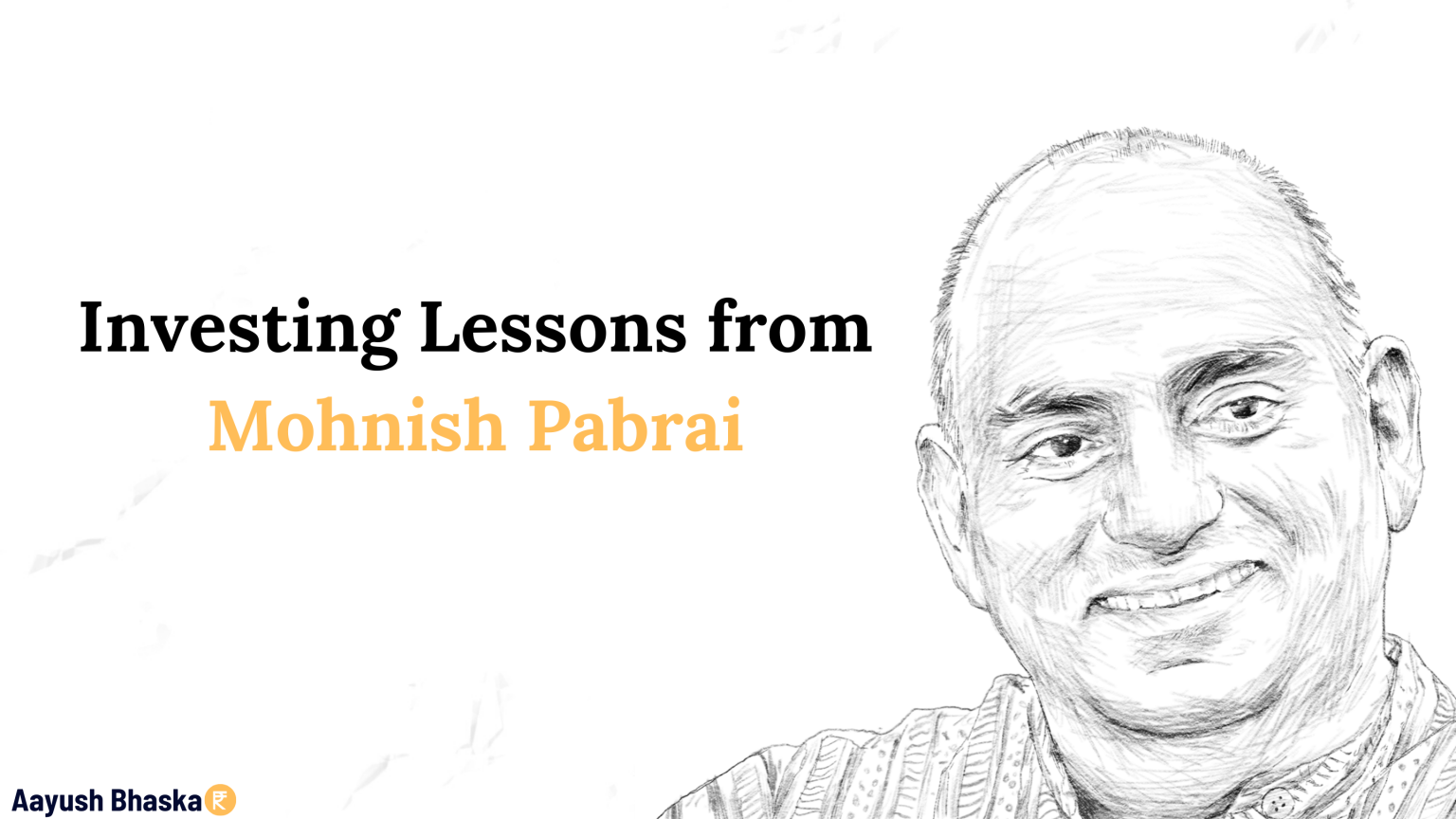
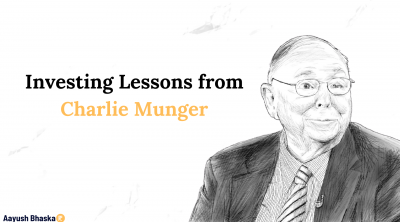

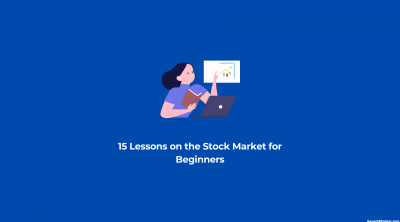
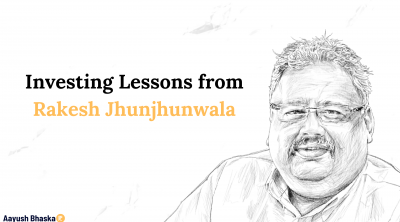
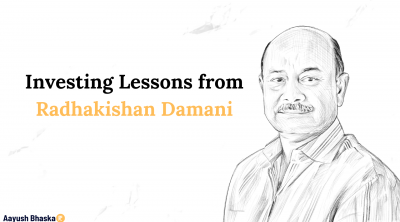

Leave a Reply